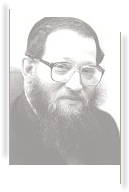Imagine you throw a huge party and invite everyone you know. But this is no "regular" party: It's one solid week of food, music and fun. Eventually things wind down and people begin to leave. As the host, you quietly go over to a few of your best friends and whisper: "Stick around after everyone else leaves -- that's when I'm breaking out the good stuff."
Each year God has a weeklong celebration called "Sukkot." In ancient times in Jerusalem, the service in the Holy Temple during the week of Sukkot featured a total of 70 bull offerings. This, the Talmud explains, corresponds to each of the 70 nations of the world. The Temple was not just for Jews. When King Solomon built the Temple, he specifically asked God to heed the prayer of non-Jews who comes to the Temple (1-Kings 8:41-43). And the prophet Isaiah refers to the Temple as a "House for all nations" (Isaiah 56:7).
The Temple was the universal center of spirituality, a concentrated point where God-consciousness filtered down into the world. In fact, the Talmud says that if the Romans would have realized how much benefit they themselves were getting from the Temple, they never would have destroyed it!
And then, at the end of Sukkot, God added a special day. It's called Shmini Atzeret, literally the "Eighth Day of Assembly". On that day, only one bull was offered -- representing the Jewish people. It is a day of great intimacy with our Creator, as He asks His Jewish children to remain with him for extra personal time together. (Talmud - Sukkot 55b)
Shmini Atzeret is a full public holiday, as described in Leviticus 23:36. Even though it immediately follows the seven-day Sukkot festival and is often considered part of Sukkot, it is, in fact, a separate holiday. This means that the She'hechiyanu blessing is recited, and the obligation to sit in the Sukkah does not apply.
TAPESTRY OF SEVENS
Nachmanides (12th century Spain) explains a beautiful kabbalistic concept: Seven is the number of the natural world. There are seven days in the week, seven notes on the musical scale and seven directions (left, right, up, down, forward, back and center). "Seven" -- represented by the seven days of Sukkot -- is the world of nature. "Eight" -- represented by Shmini Atzeret -- is that which is beyond nature.
The Jewish people, says the Talmud, are beyond nature. We have survived every imaginable persecution, exile, hardship and expulsion. And still, we have achieved and thrived far beyond our numbers. As Mark Twain wrote: "All things remain mortal but the Jew; all other forces pass, but he remains. What is the secret of his immortality?"
The "secret," as we know, is the special gift that God gave to the Jewish people: The Torah. As Rabbi Emanuel Feldman writes:
"Torah is the mysterious bridge which connects the Jew and God, across which they interact and communicate, and by means of which God fulfills His covenant with His people to sustain them and protect them."
Therefore it is no coincidence that on Shmini Atzeret we also celebrate the completion of the yearly cycle of Torah readings and the beginning of a new cycle. This event is lovingly referred to as "Simchat Torah," literally "Rejoicing of the Torah." (Outside of Israel, Simchat Torah is celebrated the day after Shmini Atzeret.)
Why are we accustomed to both finish and re-start the reading of the Torah on the same day? The Sages explain: "To show that the Torah is beloved to us like a new object and not like an old command which a person no longer treasures. Since it is brand new to us, we all run to greet it." We sing and dance for hours around the bima (the platform where the Torah is read), carry the Torah Scroll, and express our joy at having the opportunity to come so close to God.
On Shmini Atzeret, as we complete this holiday season, we offer a special prayer to God for rain. Rain represents the blessings of growth and abundance. Through all the hard work of Elul, Rosh Hashana, Yom Kippur and Sukkot, we have come a long way. Our task now is to carry that energy throughout the year.
by Rabbi Shraga Simmons from Aish.com
 eople suffer very much from the fact that they feel a hole in their lives. They think that they are the only ones who feel and suffer. They look at the mitzvot and they are not getting the right sense of satisfaction out of it, so they may be tempted to look out of Yidishkeit for happiness. A man has to know that the pleasures outside of Yidishkeit will never satisfy them. It is like a princess who marries a farmer. Any gift that the farmer will bring her will never satisfy her. The pleasures of the secular world will never make us feel better. I examined all of the ways that people seek pleasure and realized that they will never fill the hole in my life. They all came down to nothing, they are not life, they are only distractions. The thing that is missing in our lives, is our connection to Hashem. Until we find a way to really connect to Hashem with all of our being, we will never feel better. The life that I am seeking is in me, the more Torah that I find inside of me, the better that I feel. There are times that we eat nice things, or go away on a vacation, but that is not life, that is rest or distaction, life is only found by connecting in a deeper way to the Torah.
eople suffer very much from the fact that they feel a hole in their lives. They think that they are the only ones who feel and suffer. They look at the mitzvot and they are not getting the right sense of satisfaction out of it, so they may be tempted to look out of Yidishkeit for happiness. A man has to know that the pleasures outside of Yidishkeit will never satisfy them. It is like a princess who marries a farmer. Any gift that the farmer will bring her will never satisfy her. The pleasures of the secular world will never make us feel better. I examined all of the ways that people seek pleasure and realized that they will never fill the hole in my life. They all came down to nothing, they are not life, they are only distractions. The thing that is missing in our lives, is our connection to Hashem. Until we find a way to really connect to Hashem with all of our being, we will never feel better. The life that I am seeking is in me, the more Torah that I find inside of me, the better that I feel. There are times that we eat nice things, or go away on a vacation, but that is not life, that is rest or distaction, life is only found by connecting in a deeper way to the Torah.










































.jpg)


















